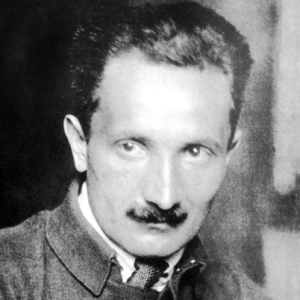The British Wasteland: A History of the Present

Philosophical Writings
Religious suffering is at one and the same time the expression of real suffering and a protest against real suffering. Religion is the sigh of the oppressed creature, the heart of a heartless world and the soul of soulless conditions. It is the opium of the people. [1]
Religion is the general theory of that world, its encyclopaedic compendium, its logic in a popular form, its spiritualistic point d’honneur, its enthusiasm, its moral sanction, its solemn complement, its universal source of consolation and justification. It is the fantastic realization of the human essence because the human essence has no true reality. The struggle against religion is therefore indirectly a fight against the world of which religion is the spiritual aroma.[2]
Perhaps the most formidable obstacle in the task of retrieving a sense of the sacred in Marx consists in his repeated, and often polemical, statements against religion – or the edited selections of his editors and guardians. Indeed, such an obstacle may in the end be one of our own making, as we are trapped within the labyrinth of our own historical understanding.[3] Yet, assuming, for the moment, that religion and the sacred are the same phenomena, if we take his pronouncement that religion is the opium of the people – which I purposely left out in the opening quotation – in isolation, we may be lead to believe that Marx felt that at best religion – and thus the ‘sacred’ – is a narcotic, which while it may be utilized to alleviate pain, remains an illusory amelioration for a situation of humiliation and despair. Religion is an opiate in that it not only implies sedation from the pain of a life of exploitation, but also – ambivalently – suggests a systematic and strategic attempt to deaden or absorb any critical impulse to liberation. In this sense, Marx’s characterization of religion as an opiate is a forerunner of many of the most radical criticisms of religion and ‘negative’ theology in last century – Gutierrez, Miranda, Bultmann, Heidegger, Derrida, and Bataille. Each of these thinkers, in his own way, articulated a sense of the sacred in the wake of Marx and his deconstruction of religion as an ‘ideology’ – despite, perhaps, his own generation’s scientistic blindness to the regulative status of all ideas.
The kinship which is shared by each of these thinkers is a disdain for mere religion in favour of the ‘sacred’.[4] Religion simultaneously constructs a ‘picture’ (Bild) for contemplation (Anschauung) and an organization that cultivates our captivity to that ‘picture’ (Wittgenstein). The sacred, on the contrary, intimates ‘love’ (Badiou), ‘binding commitment’ (Heidegger), an engaged and affirmative eruption of liberation amidst finite existence. Religion constructs its eternal church as an everlasting perpetuation of the ‘picture’, of an idol – a captivating grammar of existence – while the sacred exults in this moment of lived existence,[5] in the haeccitas of Duns Scotus. If religion is a ‘rational’ and ‘systematic’ orchestration of feeling and phenomena, the sacred is an attempt to seek access to a phenomenon beyond the array of objectification towards traces of the numen. Indeed, for Otto, one need only begin amidst this singular event.
In light of this preliminary distinction between religion and the sacred, it will be the task of Marx and the Revolution of the Sacred to excavate and disclose in the writings and historical activism of Marx an affirmative sense of the sacred which is alterior to his inherently negative conception of religion. With Marx’s empathy in his ‘sigh of the oppressed creature’, we can glimpse a sense of the sacred dissociated from a religious leviathan that merely serves to perpetuate suffering – we can begin to glimpse a sacred that exists as a radical commitment to liberation. In this way, I will contend that Marx’s criticism of religion as an ideology of oppression and sedation in no way forecloses on a possible relationship between his work and Twentieth and Twenty-First Century attempts to articulate a sense of the sacred in the world. There emerges in these latter attempts the possibility of an openness which discloses a topos for an encounter with a sense of a sacred not mediated by ‘ideology’ (or positive theology).
Ceri Evans (1965-2002) died in the same month, in August, as the Spanish poet Federico Garcia Lorca, who was murdered by the Fascist regime in 1936. In one of the tributes to Ceri Evans after his death, Terry Conway tells of a gift of a book of Lorca’s poetry which she had received from Dr Evans. Terry Conway makes this comparison of Lorca and Evans:
Here too was someone who had a passionate relationship with the place he was from, but was also a confirmed internationalist. Here too was someone for whom political ideas were not just found in theory, but in song, in dream, in all the small things of everyday life. (Whispers of a Forgotten Nation, p. 7)
In her elegant brevity, Conway captures both the spirit of Ceri Evans and his dialectical method in relation to the national and international movements for social justice and freedom. Evans lived the slogan ‘Think globally, Act locally.’ He fought simultaneously for historical justice in his native Wales, and, in the context of his perspective as an international socialist, for the eventual realisation of a global democratic socialist community, in which nations would enjoy equality, mutual aid and peaceful cooperation. Indeed, for Evans, the national question was inseparable from the struggle for international socialism.
Ceri Evans was a unique and creative thinker, at once a philosopher and activist (and with the mind of an engineer). He was a revolutionary socialist who wished to learn from the revolutionaries of the past, such as Lenin and Trotsky, but never merely to turn these ‘Great Men’ into dogmatic idols. He repeats this mantra over and over again in his theoretical and practical writings – that there is much to learn from these revolutionaries of the past and present, who have more experience and knowledge with respect to the building and enactment of revolutionary transformation. Yet, Ceri Evans had a mind of his own and assertively set forth his criticisms of these ‘Great Men’. In this way, he has enduring relevance as an original thinker and practical example for the understanding and practise of Welsh politics, and revolutionary politics as such.
This collection contains nearly thirty essays, discussion documents, presentations and other pieces from between 1990-2002, arguably one of the most important periods in the history of Welsh politics. These writings range from purely philosophical pieces, such as ‘Dialectics’, explorations of political philosophy, as in ‘Ten Draft Points on the National Question,’ to extremely concrete analyses and discussion documents of current political struggles in which he was continuously immersed, as with his writings on the Welsh language, the Welsh Assembly, Europe, Ireland, Israel, and the national struggles in Eastern Europe. In an uncanny manner, reading these essays resembles the experience of opening up a ‘time capsule’, one left as a legacy for those of us who would continue the struggle in the future. The ‘time capsule’ is open, and the documents it contains are a gift from the past.

As we can barely remember the debates between Nigel Farage and Nick Clegg, it appears that the odd man out has now obtained legitimacy, stature, plausibility. With our senses still awash with the anti-climactic failure of the Scots to take a bloodless independence that was so nicely gift-wrapped for them, all we can now remember is that Nick Clegg was dreadful and failed to convey the very absurdity of UKIP policy on obvious grounds. The very fact that Nick Clegg stood on the same stage as Nigel Farage was a mistake and revealed his lack of political judgment. Why were not the other two parties represented, as an all UK debate? Or, was it, perhaps, merely a job interview for the junior partner of the next Coalition?
Clegg’s follow up criticism of Farage over Ukraine was a pathetic sideshow to the illegal Western involvement in a coup d’etat, in which fascists have now formally entered into the cabinet of a soon-to-be European government for the first time since WWII. But, we all pretend that that did not happen and condemn Russia instead. Farage was ironically correct on this issue that the Coalition government has ‘blood on its hands’ over Ukraine, and UKIP has never been as strong as it is today. It is now conceivable to imagine a Coalition Government in which they would be a part, such as a Conservative-UKIP alliance.
We are dreams of sleeping gods
fragments of an eternal nameless
we ourselves must become nameless
lest we die, lest we become
fixed into marble, as all
statues were once alive
the violence of the name
kills playful life
 This essay was published by Philosophy Today in Vol. 47, No. 3, pp. 252-257 (Fall, 2003). The Appendix: Reply to Kisiel, ‘The Indication of “Makeshift” in an Interpretation of Heidegger’s Radical Phenomenology’ is intended as a reply to Theodore Kisiel’s criticism of the indication of ‘Makeshift’ as too revolutionary for Heidegger in his Review of Heidegger’s Early Philosophy: The Phenomenology of Ecstatic Temporality, published by Bloomsbury in 2008.
This essay was published by Philosophy Today in Vol. 47, No. 3, pp. 252-257 (Fall, 2003). The Appendix: Reply to Kisiel, ‘The Indication of “Makeshift” in an Interpretation of Heidegger’s Radical Phenomenology’ is intended as a reply to Theodore Kisiel’s criticism of the indication of ‘Makeshift’ as too revolutionary for Heidegger in his Review of Heidegger’s Early Philosophy: The Phenomenology of Ecstatic Temporality, published by Bloomsbury in 2008.
When questions are raised about principles, the network of exchange that they have opened becomes confused, and the order that they have founded declines. A principle has its rise, its period of reign, and its ruin. Its death usually takes disproportionately more time than its reign.1
In a summary of the Davos Disputation with Ernst Cassirer, and in his lecture on Kant and the Problem of Metaphysics, Heidegger is documented as announcing the deaths of the principles of ‘reason’, logos, and ‘spirit’ as adequate “grounds” for a finite thinking rooted in existence. He rings the alarm bells – the “foundations of Western thinking” are in “crisis” – and are threatened with utter collapse. Heidegger makes these statements amidst the horizons of his own temporal existence and problematic, that of his radical temporalization of thought and of the exposure of these traditional grounds to their ‘tragic’ origin as aspirations of finitude. Cassirer contests Heidegger’s radical, temporal interpretation to Kant – any thought worth its salt must be open to the eternal. Despite his comments elsewhere that defer to the spirit of Cassirer’s criticism, Heidegger intimates possible readings of or engagements with the Kantian text which moves beyond “philology” or “scholarship” in the usual sense of cultivating or advocating a “school of thought” – or any attempt to identify the will as a ding an sich. Heidegger’s attempt to disclose an “unsaid”, to de-construct texts so as to retrieve the original temporality of the question, concerns not only Kant but, in light of the “Being and Time project”, other thinkers, such as Leibniz and Husserl, who are significant for his expression of a radical phenomenology – for his temporalist thinking.
In many ways, these many names are place-names, topoi, for the investigation of the historicity of thought in its significant junctures, reversals, transitions, convergences, transgressions. And there is a marked similarity in the treatment of these many thinkers as each is appropriated in the context of Heidegger’s “makeshift.” As mentioned, Heidegger does not seek to be a “good scholar,” but to investigate various topoi of thought with respect to their disclosure of “matters themselves,” in their accentuation of the phenomenon of original temporality. In his activity of squatting these various topoi, Heidegger is in a destruktive, oppositional comportment with the “history of ontology,” but in such a way which seeks to learn from this trajectory of the questionable thesis that truth resides in the proposition and that the measure of truth is ultimately “logic.”
‘From the re-incarnation of a Dadaist Poet fixated on an Edwardian Pornographic photo to the end of British Civilisation in an Apocalyptic Earthquake, this novel sprawls across the devastated landscape of the ‘teens of this century. The seedy underworld and the seedy overworld clash in a kaleidoscope of sex and violence leaving only the ‘feral children’ to make their own world from the wreckage.’
Watch Wasteland, a documentary by William Wright on squatting in the United Kingdom.
Irony is the form of paradox. Paradox is what is good and great at the same time.
The other, namely, that It is not,
and that something must needs not be, –
that, I tell thee, is a wholly
Untrustworthy path
For you cannot know what is not –
that is impossible –
nor utter it …
— Parmenides
Derrida introduces the motif of ‘différance’, the purposive misspelling of the word difference, for purposes of ‘strategy’.[1] The playfulness associated with its usage is meant to be disruptive, subversive and adventurous (note Beaufret’s third question to Heidegger in the Letter on Humanism, regarding turning philosophy itself into an adventuress). Différance, according to Derrida, is neither a concept nor a word, but a motif which intimates a play that, he claims, is prior to Being, and the ontological difference between beings and Being. This motif that is neither a word nor a concept is instead a trace of that which does not itself have being, or presence. Derrida informs us moreover that he intends the essay with its nameless name to proceed through the intensification of the play of the sign which, with regard to our customary expectations, is a misspelling – or perhaps a child’s game of no immediately useful significance.
To read the rest of the essay, please visit The Way That is Not: The Motif of Différance.
Ah the wind, the wind is blowing 
Through the graves, the wind is blowing
Freedom soon will come;
Then we’ll come from the shadows.
Leonard Cohen, ‘The Partisan’[i]
Spinoza is often quoted approvingly (for instance, by Deleuze in his Expressionism in Philosophy: Spinoza and Andre Garcia Düttman in his Address to the 3rd Annual Joint Conference of the Society for European Philosophy and the Forum for European Philosophy in 2007) to the effect that the free man is the one who thinks about, or fears, death the least. Such fear he considers to be a passive emotion, or affection, a bondage to pain, symptomatic of impotence and servitude. The free man, in this light, is one who has not only cultivated the stronger active emotion of acquiescence to the univocal chorus of necessity (Eternity), but has also learned to disengage external factors which bring about such passive emotions – to organise the ‘order of encounters’ as Deleuze describes in his Expressionism. Heidegger, on the contrary, who criticises Spinoza, and the impersonal, mathematical character of his system, in his 1936 lecture course, Schelling’s Treatise on Freedom, would seem to take further issue with Spinoza in his own contention that the one who faces his or her ownmost possibility of death without evasion, is the one who is most free, or who, perhaps, will have found him or herself in a moment that discloses the necessity of one’s own singular, personal freedom.
Read the rest of this essay at Of Freedom: Heidegger on Spinoza
You must be logged in to post a comment.